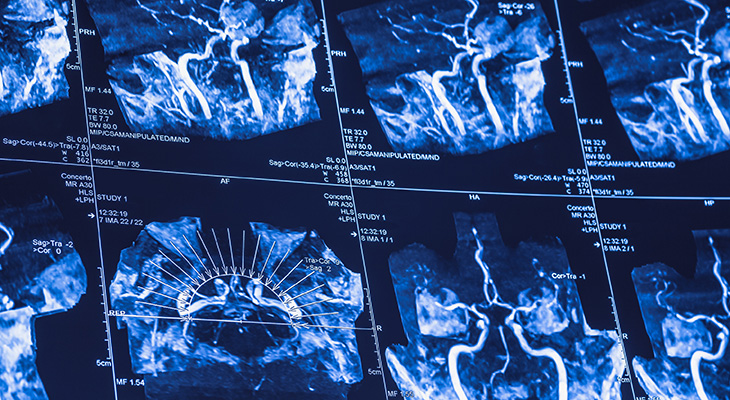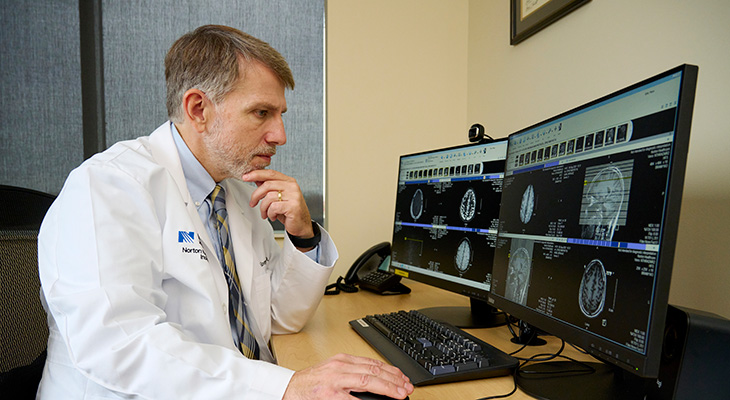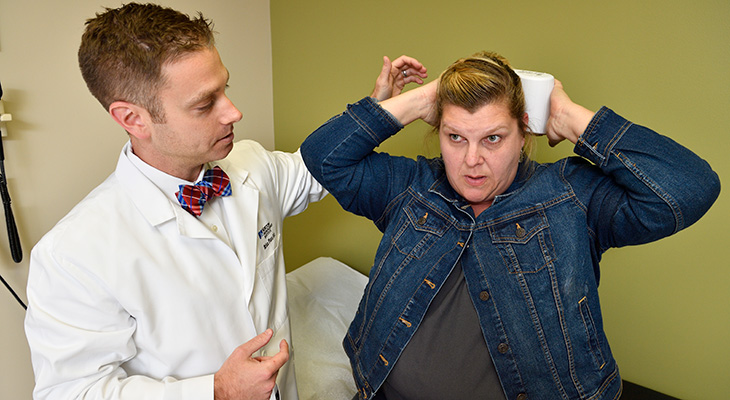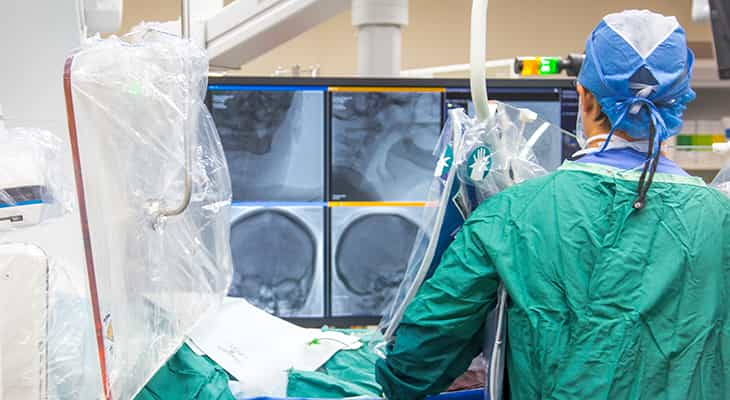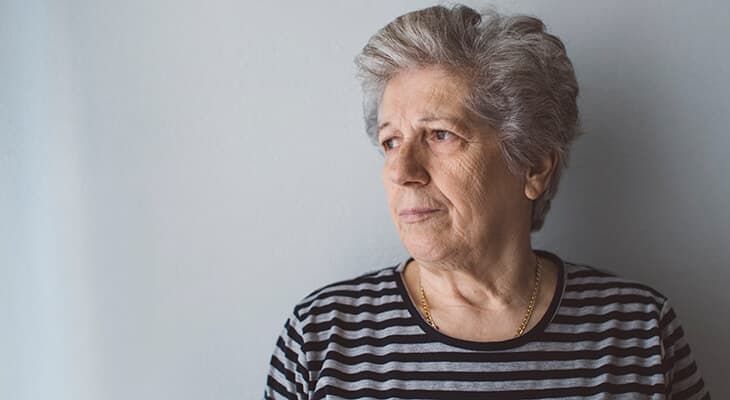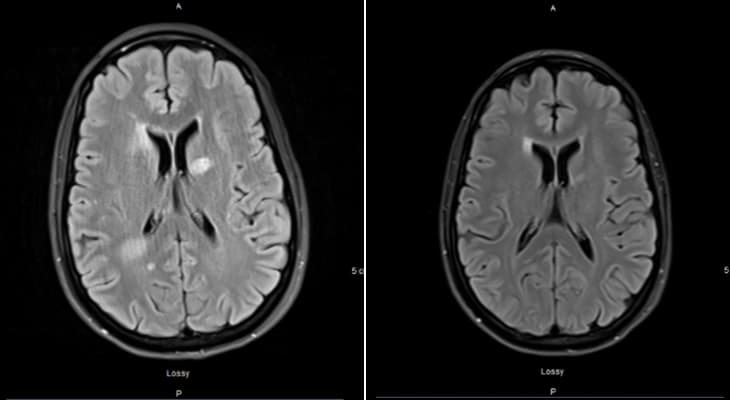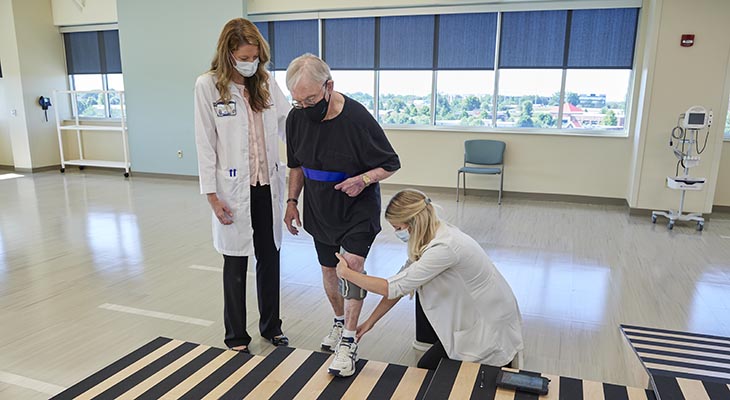Imaging could lead to further expansion of tPA window
Additional data could lead to stronger guidelines extending the tPA window for ischemic strokes beyond the current 4½ hour limit in coming years, according to a Norton Neuroscience Institute stroke specialist. A common scenario faced [...]
View morePhase 3 trial examines whether donanemab can prevent Alzheimer’s
Patients who are cognitively normal but have a family history or other concern about developing Alzheimer’s may be eligible to participate in a study looking at whether an investigational drug can slow or prevent the [...]
View moreWhen are headache symptoms a red flag for a more serious condition?
When are headache symptoms consistent with migraine or red flags of a condition warranting urgent or emergency medical attention? Migraine occurs in a recurring pattern and can be diagnosed clinically, without MRI or other tests, [...]
View moreIs it a stroke or does it just present like one?
Ischemic stroke is the among the leading causes of death in the United States, but so-called stroke mimics and stroke chameleons also can be deadly. At a recent presentation, Bryan J. Eckerle, M.D., neurologist with […]
View moreDelirium and dementia: Overlapping symptoms, but distinct syndromes
Delirium and dementia are distinct clinical syndromes, with symptoms that frequently overlap. Delirium is a neuropsychiatric condition that occurs acutely, a sudden and definite decline from the baseline, progressing over hours, days, or weeks, but [...]
View moreFree classes for headache patients at Norton Neuroscience Institute
Headaches can interfere with patients’ daily lives in big and small ways. For providers, headache disorders can be difficult to diagnose and treat. “Patients who have more knowledge of their condition are generally going to […]
View moreAtrial fibrillation incidents found in large trial with stroke patients not thought to be at risk
Compared with usual care, implantable cardiac monitors (ICM) detected significantly more atrial fibrillation (AF) events in stroke patients who likely would not have been monitored long term for AF otherwise, according to a study published […]
View morePatients with multiple sclerosis often can continue driving after an assessment and vehicle modifications
Patients with multiple sclerosis (MS) or another neurological diagnosis often can continue to drive, allowing them to keep a level of independence, once an assessment is conducted and any modifications and restrictions are adopted. Driving […]
View moreKnowing the difference between dementia and depression in older adults
Many seniors experience some level of sadness. It can be triggered by a lot of different events as they get older: losing loved ones and spouses, experiencing an unwanted move, coping with serious illnesses. Often, […]
View moreMS case study: Specialized care allows for early therapy that resolves symptoms in months
The patient A 29-year-old woman with no major medical issues awoke with blurry vision. As the day went on, she began to see double. She looked in the mirror and saw that one of her […]
View moreSpecialized physical rehab technology in Louisville
Cressman Neurological Rehabilitation, a part of at Norton Neuroscience Institute, now has expanded offerings, including technology and treatments you can’t find anywhere closer than Louisville. It is located in a newly opened space at Norton […]
View moreRehab program helps patients return to driving
For individuals who have been unable to drive a vehicle due to neurological, orthopedic or other conditions, or for those who have experienced age-related changes in function, the loss of independence can be devastating. The […]
View more